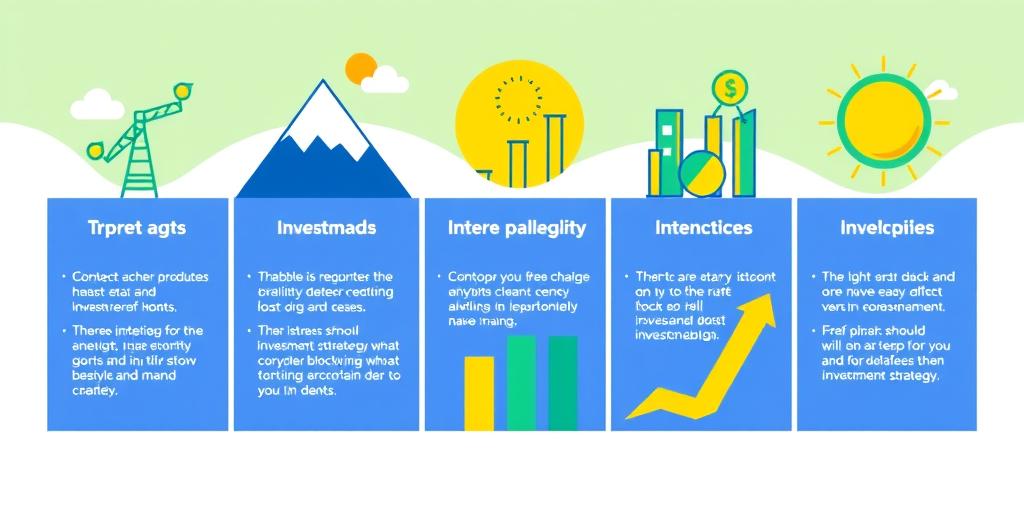Want to make your money work smarter, not harder, in 2025? You're in the right place! This isn't just another boring investment guide; we're diving headfirst into seven surprisingly simple yet incredibly effective investment strategies tailored for Americans. Get ready to unlock financial freedom and watch your portfolio flourish! Prepare to be amazed by these easy-to-implement, high-impact investment tips that will leave your money working harder than ever before.
7 Smart Investment Strategies for Americans in 2025
Diversification: The Golden Rule of Investing
The first and perhaps most crucial strategy is diversification. Don't put all your eggs in one basket! Spread your investments across various asset classes – stocks, bonds, real estate, and alternative investments like commodities or cryptocurrency (with caution!). Diversification helps mitigate risk; if one investment underperforms, others might offset those losses. A good rule of thumb is to diversify geographically as well; invest in companies and properties located in different parts of the US (and globally, if you're comfortable with international investment). Consider dollar-cost averaging to manage your investment risk more effectively. When the markets are volatile, dollar-cost averaging is a great strategy to help average out the highs and lows. Researching and understanding various diversification strategies is crucial for long-term financial success and can significantly reduce investment risk. This approach is especially relevant for long-term investors looking for stable growth and reduced volatility.
Index Funds and ETFs: Passive Investing Powerhouse
Index funds and exchange-traded funds (ETFs) offer a low-cost, passively managed way to invest in a diversified portfolio. Unlike actively managed funds with higher fees, they simply track a specific market index like the S&P 500. This eliminates the need for constant market timing and allows you to ride the overall market growth over the long term. Index funds are a fantastic option for long-term investors and beginners alike, making investment easy and accessible. Look for low-cost index funds or ETFs to maximize your returns and minimize expenses. This passive investment strategy is both effective and time-saving. With minimum-cost index funds, you can easily invest in the stock market and reap the benefits of long-term growth.
Real Estate: A Tangible Asset Class
Real estate remains a solid investment option, offering both rental income and potential appreciation. Whether it's a residential property, commercial building, or REIT (Real Estate Investment Trust), real estate provides diversification beyond stocks and bonds. Consider your risk tolerance and resources before investing in real estate. If you're not comfortable managing properties, REITs are a great alternative; these companies own and manage a portfolio of properties, providing a convenient way to participate in the real estate market. Remember to do thorough research before investing in any property to understand its potential return on investment. Don't forget to research the local housing market and property management strategies.
Bonds: Balancing Your Portfolio
Bonds serve as a crucial balancing act in your investment portfolio. They generally offer lower returns than stocks but with less risk. Bonds provide stability and income and are less volatile than other assets. Incorporating bonds helps reduce the overall risk of your investment portfolio. Consider a mix of government and corporate bonds to further diversify your bond holdings. Understand the risks and rewards of different bond types before you invest to avoid potential financial setbacks. For beginners, government bonds are a great option because of their lower risk.
Retirement Planning: Secure Your Future
Don't neglect retirement planning! Contributing regularly to retirement accounts like 401(k)s and IRAs is critical. The power of compound interest allows your investments to grow significantly over time. Take full advantage of employer matching contributions to maximize your returns. If you have high-income or have a comfortable surplus, consider exploring tax-advantaged investments to reduce your tax burden.
Tax-Advantaged Investments: Minimize Your Tax Burden
Explore tax-advantaged investment options like 401(k)s, IRAs, and 529 plans to reduce your tax liability and boost your overall returns. These accounts offer significant tax benefits, accelerating wealth accumulation. Understanding these investment options and the tax implications is crucial for optimal investment strategy. Consult a financial advisor to determine the best tax-advantaged investment plan that fits your financial goals.
Stay Informed and Adapt
The investment landscape is constantly evolving. Stay up-to-date on market trends, economic news, and any changes to your investment strategy. Regularly review your investments to make sure that they align with your personal financial goals. Don't panic sell during market downturns—stick to your investment plan and ride out the market fluctuations. If necessary, adjust your investment strategy according to your changing financial status and long-term goals. Consult a qualified financial advisor for tailored guidance.
Ready to transform your financial future? Start exploring these smart investment strategies today and pave your way to financial success!









